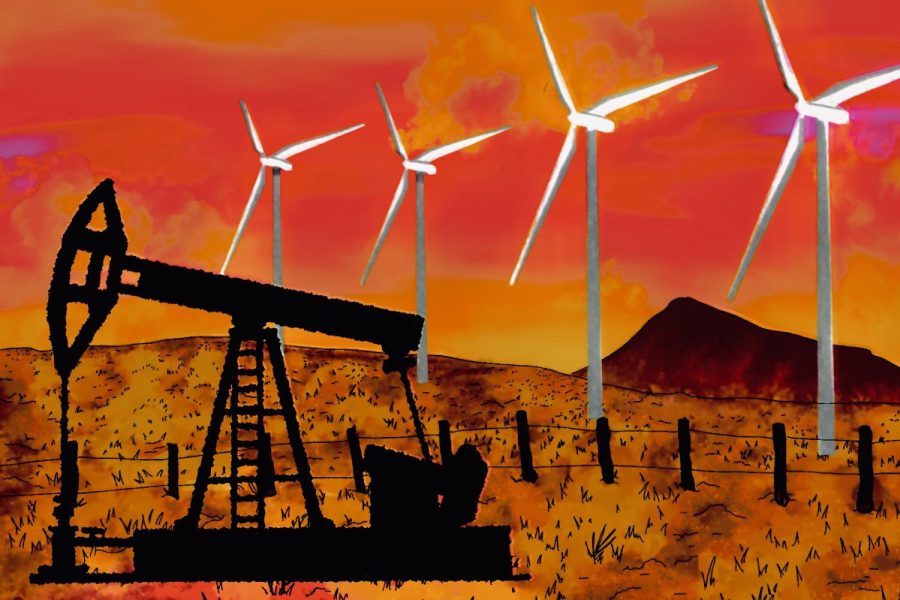UT’s endowment needs diversification, not divestment
April 13, 2023
UT had several headlining stories last year, perhaps none bigger than predictions that its endowment would overtake Harvard’s to become the largest in the country. However, in the wake of this news, critics are quick to judge the endowment’s reliance on fossil fuels, citing environmental concerns.
While it’s understandable to be skeptical of UT’s sources of income, the endowment shouldn’t lose credibility just because of its investment in fossil fuels.
Traditional energy sources are crucial to providing households across America access to affordable and reliable energy. Until alternative sources of energy can independently support infrastructure, divestment from oil and gas is not the best course of action. Instead, diversifying UT’s energy sources over time — gradually replacing fossil fuels with renewables — is a better way of “divesting” into a cleaner future.
Reliability and affordability are the primary reasons why traditional energy sources, like oil and gas, remain in such high demand.
When Russia invaded Ukraine in February 2022, energy prices skyrocketed. Across the world, gas and electricity prices increased. In Texas, utility bills shot up more than 200%. For most families, this wasn’t a light burden.
However, it’s not just high prices that drive concern — reliability is an equally important factor.
One year before Russia’s provoked energy crisis, Texas suffered a major grid failure resulting in a loss of power throughout the state. Over 240 people are estimated to have died as a result.
While plant failures of all kinds were responsible for the blackout, traditional energy sources kept countless families warm when power prices jumped and reliability slumped.
Failures like these demonstrate how vulnerable Texas’ current energy infrastructure is. Suddenly boycotting these energy sources is not a safe nor more equitable way of approaching energy transition. It’s taking the training wheels off too early.
“One way to insulate yourself from commodity price spikes is to reduce dependence on oil and gas,” said Hugh Daigle, associate professor in petroleum and geosystems engineering. “Diversifying the amount of energy resources actually is a good thing to help prevent some of those price spikes.”
A shift in energy sources can mitigate volatility due to forces beyond anyone’s control, such as supply shortages, geopolitical tensions or natural disasters — occurrences all too common today.
Having various sources of energy is key to building a sustainable and independent future. The best way to go about this is to gradually reduce dependence on oil and gas to avoid future energy crises and to make sure every household has equal access to utilities.
“It’s important that we invest into clean technologies,” petroleum engineering senior Matthew Bagtas said. “But we also need to be mindful that there are still areas with insecure access to energy, and by developing and investing in current technologies, (such as) fossil fuels, we can still continue to provide those types of cheap, sufficient energy to areas that don’t have that type of accessibility.”
Oil and gas is not the future of energy. However, it is not yet a relic of the past. Reliable sources of energy are crucial to providing homes across the country affordable energy when alternatives may not be an option.
For UT’s endowment to withdraw entirely from oil and gas, it would be subscribing to this premature transition. Instead, by remaining partially invested, diversification is how Texas can become a future leader in energy while remaining the fail-safe of traditional energy today.
Laky is a finance sophomore from Chicago, Illinois.















